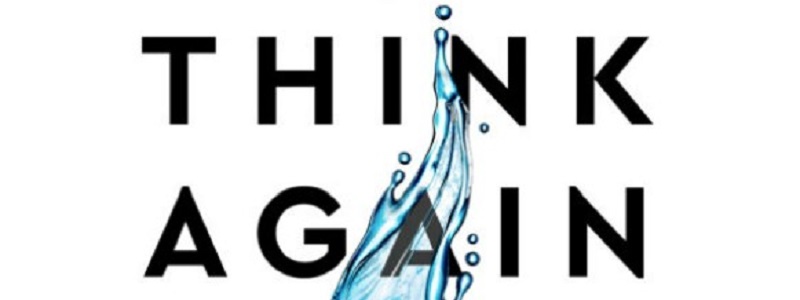When presented with a different way, when do you find yourself saying these things:
- That’s the way I’ve always done it.
- That’s too complicated; let’s not overthink it.
- That’s not what my experience has shown.
- That will never work here for me.
When you do, you may be stuck in one perspective. This can prevent you from finding the best for you as well as alienate others.
Polarization is all too prevalent in our thinking today and not only keeps us from getting along but keeps us from seeing the truth for ourselves. When we acknowledge that things are really shades of grey, we can stay open and curious and start listening to other perspectives.
Adam Grant, organizational psychologist, shares how to “Think Again” in his book of that name. He examines what it means to re-think your perspective. He endeavors to teach the reader to question opinions and open minds – yours and that of others. What I share here is largely inspired by his research.
Think Like a Scientist
The scientific method has recently gotten hijacked by some wishing to advance one certain agenda. In light of this, let’s revisit what it really means to think like a scientist.
A scientist has no preconceived ideas, no agenda of a particular outcome when experimenting.
A scientist is curious and open-minded in the inquiry, welcoming views opposed to the hypothesis or broadening the view.
A scientist knows as a human, there are biases, and does everything to check them and be objective.
A scientist takes what she learns in the experiment and applies it to revising the hypothesis.
A scientist leads by asking questions and most likely ends an experiment with even more questions, rather than convictions.
Polarized Views and Bias
In a world of sound bites, short and simple leaves out nuance and complexity. Reality most likely is a spectrum of perspectives that we could take, along with the uncertainty of interrelated dilemmas.
In fact, complexity is a sign that people will find that information more credible.
In psychology, we need to ward against confirmation bias. That is when you see what you expect to see. We may be blind to what actually is there.
When we see what we want to see, that is desirability bias. This flaw can lead us to abandon curiosity and preach our favorite belief more strongly or prosecute a seeming opposite view.
And people with intellectual intelligence tend to fall into the trap of thinking they are not biased.
Then there is the bias of being an outright denier, dismissive in the mode of moral high ground or having to win instead of losing. That leaves out a healthy skeptical scientific approach.
Let’s look for reasons why we might be wrong rather than reasons that we must be right. It is one more step towards uncovering your truth.
Re-think Health Information
Applying this towards maintaining or improving your own health, consider the bias of the information you encounter.
I hope you intrinsically question everything you read on the internet.
On sales pages, one of my pet peeves is being a logic bully. They take you along a line of thinking that reinforces that you have a certain pain, then through a series of steps it is only logical that you need their product. The reality is that their product may be one solution, and only when you see the pain from their perspective. Which you know is one in a spectrum of perspectives and may not even apply to you. Your pain may be coming from somewhere completely different.
When looking at a published study, consider who funded the study, what their hypothesis is, and who they chose to participate. Then, find if they include caveats to conclusions, acknowledge mixed results, admit limitations of study, and highlight what might be relevant or irrelevant to applying the study.
When considering a doctor’s recommendation, can you uncover any hidden agenda evident if they are trying to convince you they are right? Are they preachy or judgmental of other ways of doing things? Can you find a bias which would invalidate the recommendation? Can you be skeptical at first and sort through these things?
What keeps you from changing your perspective?
Consider your own bias. Do you fit into one of the categories above?
- I’ve always done it this way: but do you feel good with the results you are getting?
- It’s too complicated: but what do you miss by insisting on convenience?
- That’s not what my experience has shown: but how have you interpreted your experience, what bias are you holding?
- That will never work for me: but is your resistance that you are not fond of doing what is offered, so are unwilling to be open?
Adam Grant offers pearls of wisdom:
Research shows that when you are resistant to change, it helps to reinforce what will stay the same.
Discover the joy of being wrong and the thrill of not believing everything you yourself think.
You must unlearn what you have learned when it does not serve you.
Start with humility and curiosity to find your motivation to change.
When you encounter resistance ask: what evidence would change your mind?




